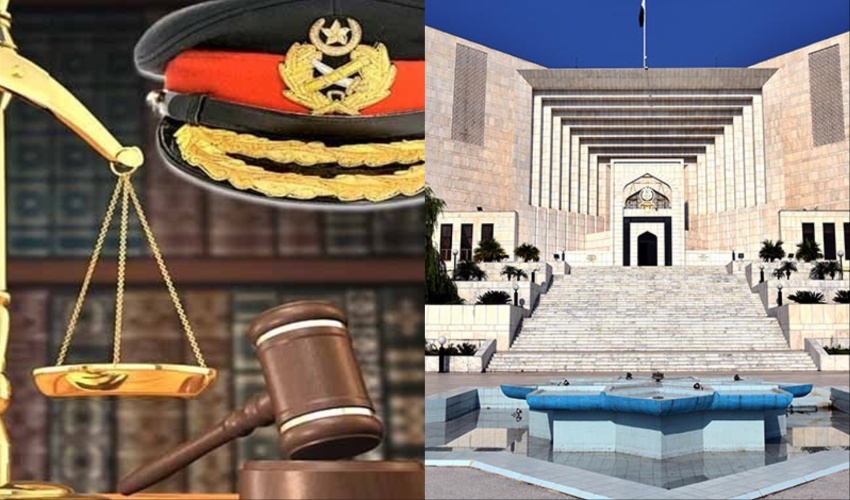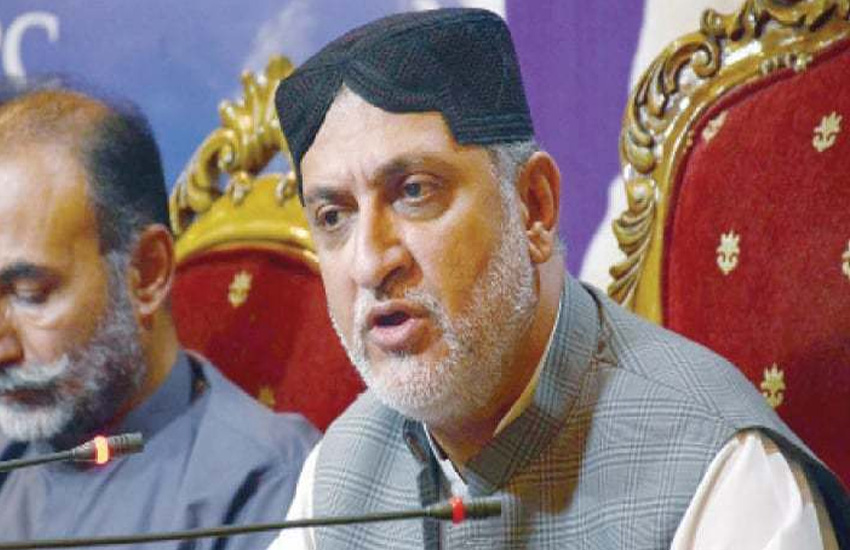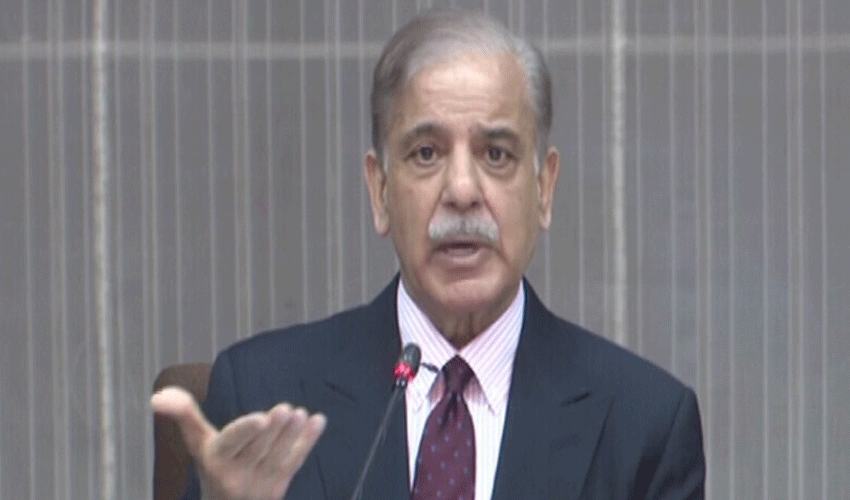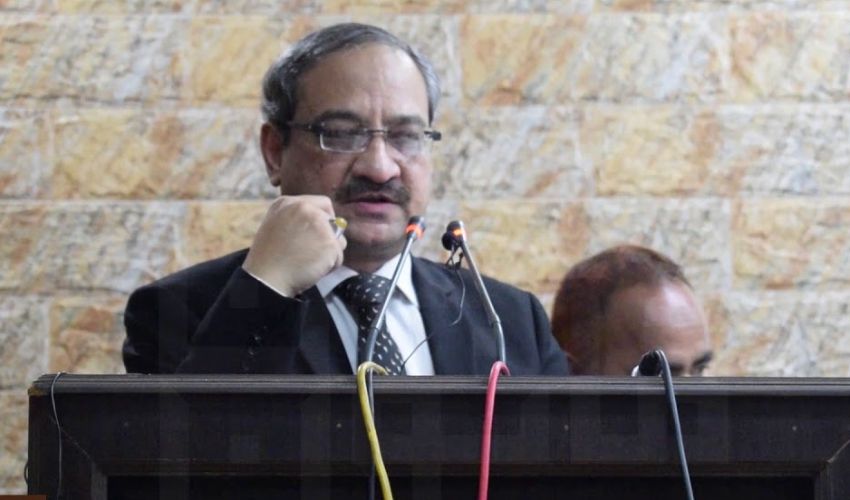The Supreme Court on Tuesday resumed hearing intra-court appeals challenging the trial of civilians in military courts.
Justices raised sharp constitutional questions about the scope of the Army Act and the protection of fundamental rights.
The hearing was adjourned until Thursday after intense exchanges between the bench and the Defense Ministry’s counsel Khawaja Haris.
A larger seven-member bench headed by Justice Aminuddin Khan is hearing the petitions against the use of military courts to try civilians involved in incidents following the May 9 violence.
The petitioners argue that such trials undermine constitutional protections and bypass civilian judicial systems.
‘Constitutional amendment needed’
During the hearing, Justice Naeem Akhtar Afghan observed that trying civilians under military law required a constitutional amendment.
“You should have made a constitutional amendment for the court martial of civilians,” he remarked, questioning the legal basis of subjecting civilians to court martial without changes to the Constitution.
‘Fundamental rights apply to all’
Justice Jamal Khan Mandokhel echoed the concern, noting that the seriousness of an offence should not justify the suspension of fundamental rights. “It does not matter how serious the crime is, it can be a severe and terrible crime,” he said. “Even if a terrorist commits a crime, do they not have fundamental rights?”
The judge further remarked that “suspension of fundamental rights is linked to the crime” and questioned how laws can be applied preemptively to conspiracies that haven’t occurred yet — a reference to arguments made about preventive military trials under the Army Act.
Military personnel vs. civilian rights
In response, Khawaja Haris contended that military personnel also face restrictions on their rights under the Constitution. “The fundamental rights of military personnel are also suspended — are they not Pakistani citizens?” he asked.
Justice Mandokhel, however, clarified that military officers voluntarily accept such limitations. “Army members join the army by choice — they know their rights will be suspended,” he remarked.
Khawaja Haris argued that if the Constitution grants protection to citizens, then military personnel too must be considered within its ambit. He warned that if the court begins to question the jurisdiction of military courts over such cases, “then anyone can be tried” in a civilian court, potentially eroding the military’s capacity to act in matters of national security.
Wider bench presses on legal, moral boundaries
Earlier, in Monday’s session, the bench grilled the defense over the constitutional status of military trials. Justice Musarrat Hilali questioned whether general legislation could override fundamental rights, suggesting that such a step required constitutional amendment.
Justice Muhammad Ali Mazhar pointed out that different provisions exist even for similar crimes such as murder and attempted murder under the penal code — an argument against a one-size-fits-all approach under military law.
Justice Mandokhel had also raised concerns about emotionally framing the debate around national security, stressing that “any violation of the law is against the state’s interest.” He questioned whether events like the Bolan train tragedy should then also be classified as such.



























